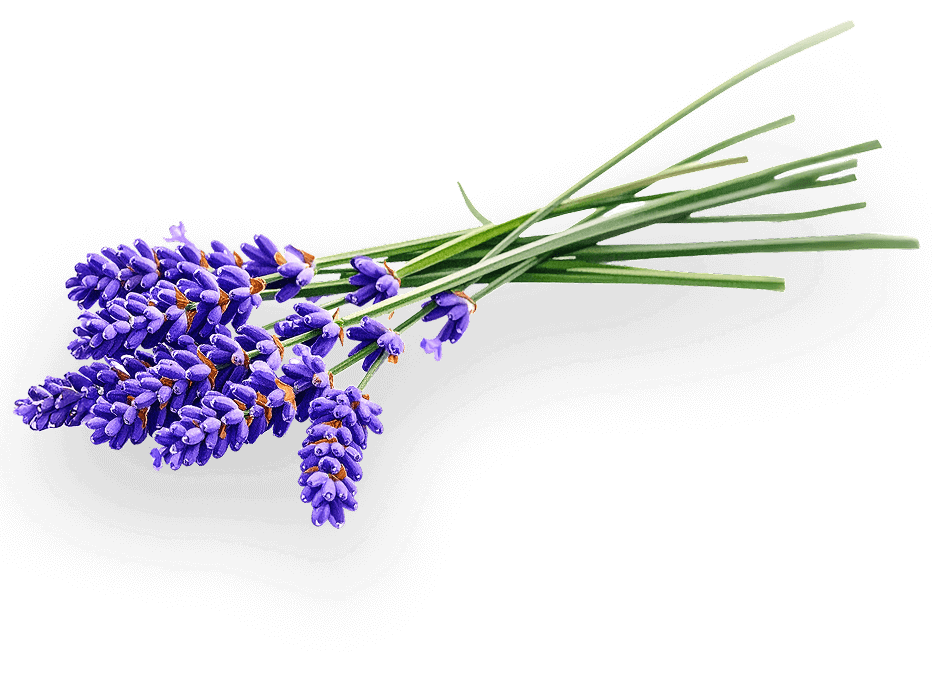
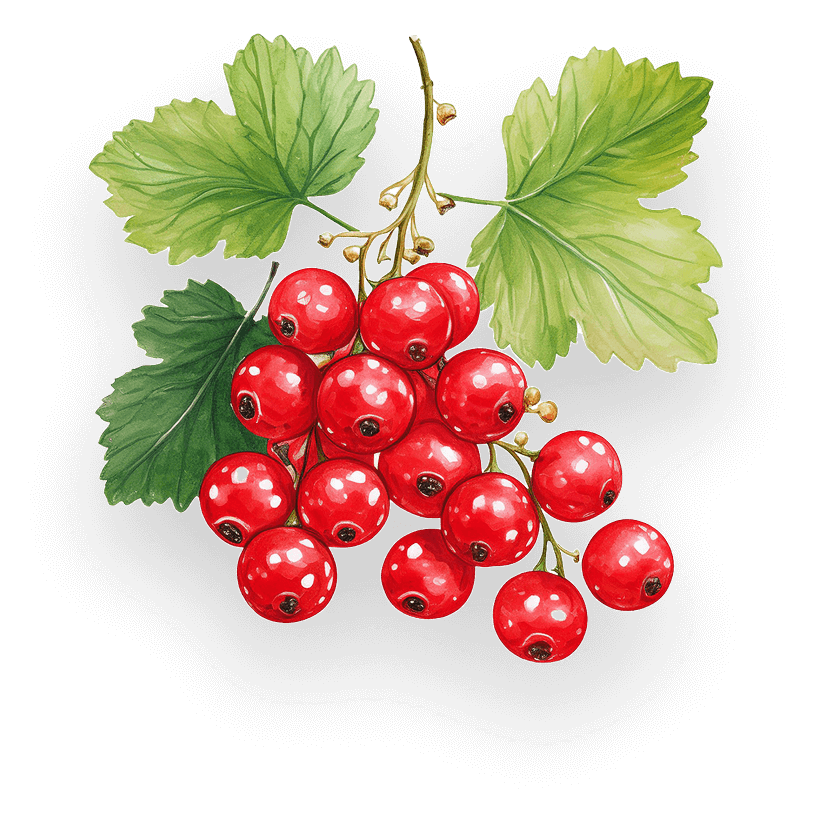



Red currant, lavender & toffee
Juicy, syrupy mouthfeel
Complex acidity
A classic Kenyan. The dominant acidity in this coffee reminds us of freshly picked red currants. But don’t worry – the sweetness of toffee balances it beautifully with a syrupy texture that softens the brightness. In filter brews, the berry notes and floral hints of spring lavender shine through. As an espresso, it’s bold with a creamy texture. Pure Kenya in every cup.




Medium coarsley ground coffee: 16g
Water: 250ml
Temperature: 92°C
—
First pour: Let coffee bloom with 50ml of water for 35sec
Second pour: Fill up gently wetting the entire coffee bed until 250ml
—
Total extraction time: 2min 25sec
Fine ground coffee: 18g
Extraction volume for 2 espressi: 42g
—
Extraction time: 26sec
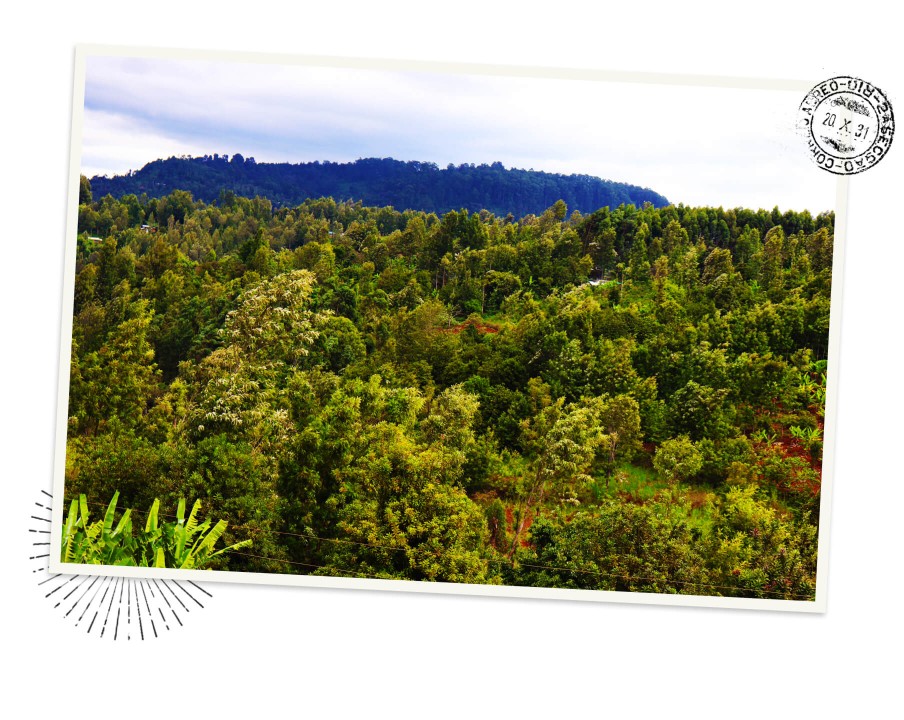
The Kiamabara Coffee Factory is located in Nyeri County, nestled between Mount Kenya and the Aberdare Mountains – one of Kenya’s most renowned coffee-growing regions. Established in 1995, it is part of the Mugaga Farmers’ Cooperative Society and works with around 3,000 smallholder farmers, each cultivating coffee on small plots alongside crops like macadamia, bananas, and maize. Fertile volcanic soils, elevations around 1,900 m, and a temperate climate provide ideal conditions for high-quality coffee.
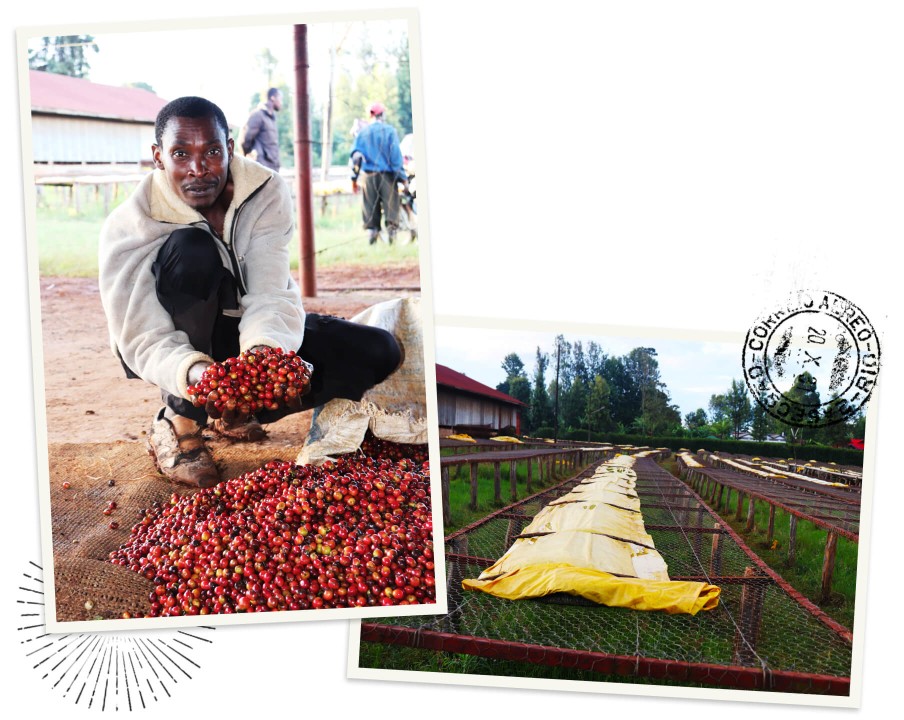
The region is shaped by distinct rainy seasons and a biennial harvest cycle, with main harvests in spring and autumn. Farmers receive technical support through training and regular field visits. The cooperative promotes sustainable farming and ensures compliance with agronomic standards. Intercropping with macadamia is allowed, while maize and beans are discouraged.
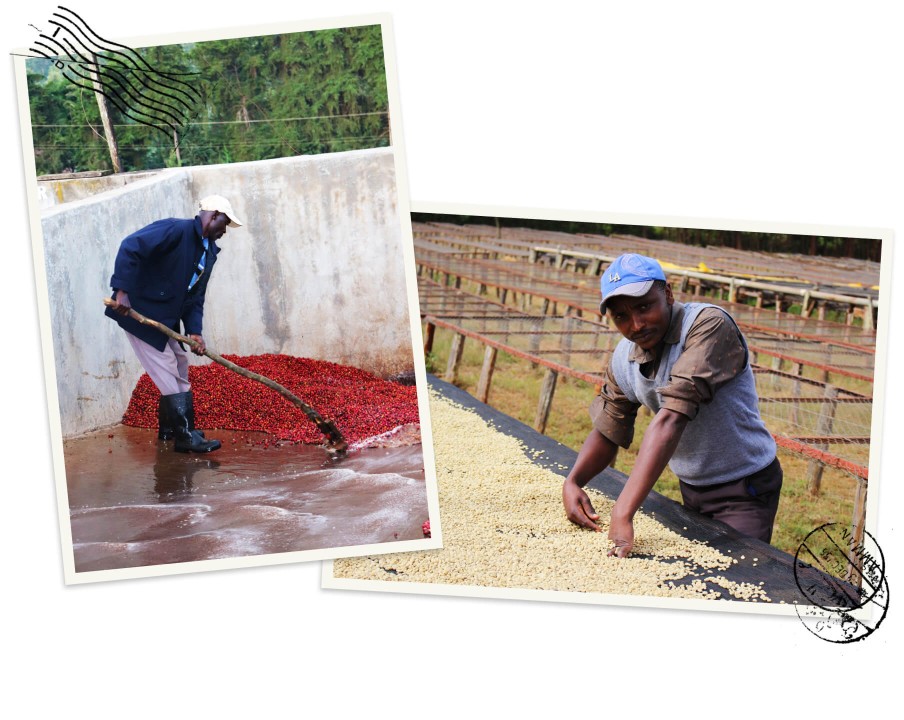
Processing follows the classic Kenyan washed method. After pulping, the coffee is fermented, thoroughly washed, soaked in water, and dried on raised beds. The parchment is frequently turned and sorted during drying. Eco-friendly practices such as natural filtration pits are used for wastewater management. The result is a clean, vibrant cup profile, characteristic of Kenya’s finest coffees.